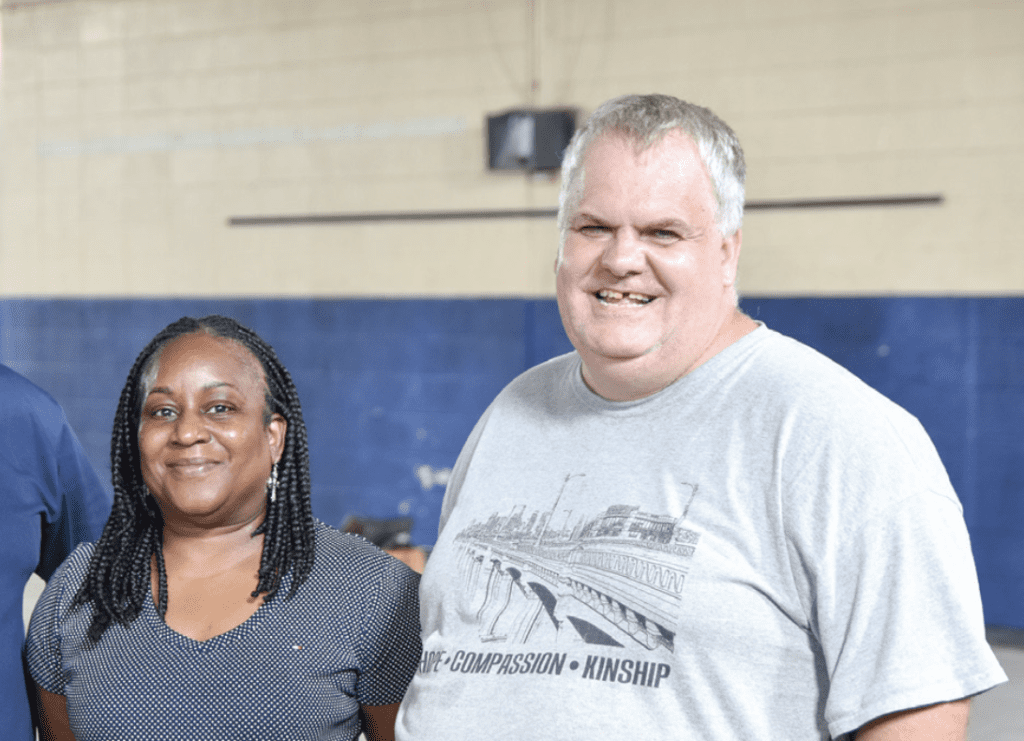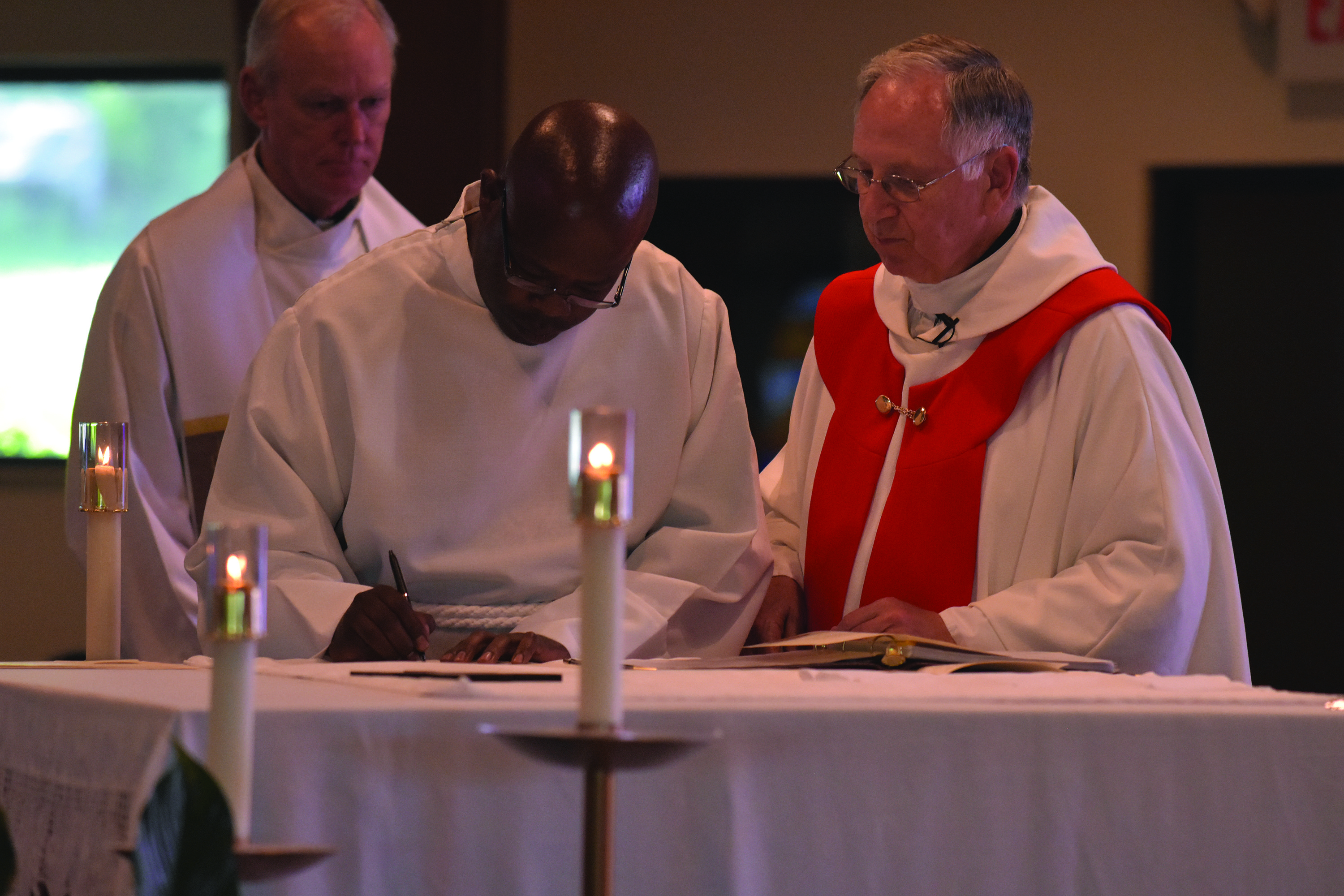
Brother Jason Muhlenkamp poses with Sondra Alexander at a soon-to-be community center.
If you travel to Southwest Georgia, where the echoes of the old plantation economy still dominate, you will find yourself immersed in African-American culture. Blacks outnumber whites; poverty (24%) is the highest in Georgia; agriculture, now mechanized, is the mainstay of the economy (peanuts, cotton, soy, corn).
Glenmary Brothers Jason Muhlenkamp, Levis Kuwa and Glenmary Father Mike Kerin minister in the region. Brother Jason, along with a local African-American Baptist pastor, has made inroads in developing antipoverty services that cross racial boundaries.
C-Hope is what Brother Jason and Pastor Darrell Alexander call their ministry, based in Blakely, Georgia, in Early County. “Pastor Darrell had this idea 10 years ago,” explains Brother Jason. They named their outreach ministry C-Hope (as in “see-hope”) an umbrella for a number of efforts including a jobs-training program called Neighbor to Neighbor and a variety of services to help people who are struggling against poverty.
“The latest effort is emergency transitional housing,” explains Brother Jason. “The plan is to help families transition from homelessness to their own place.” The emphasis is to help people set goals in their lives, to move from hopelessness to hopefulness. Hence the name C-Hope. The program recently acquired its third transitional house.
It’s no small thing that white Brother Jason and Black Pastor Darrell are working together. That type of thing is uncommon in the area. They are different, each from a different culture, but they share a common dream of Christian fellowship and betterment of the community.
Pastor Darrell likens them to the apostles John and Peter, in Acts of the Apostles. They could have been competing with one another, each has a valuable role in the emerging church. “John was a little more well presented,” says Pastor Darrell; “Peter was more the fiery guy, always getting into trouble. But they decided to put those differences aside and go to church together. That’s Brother Jason and Pastor Darrell, on their way to church, together.” Putting difference aside is the key to an interracial, and interdenominational, ministry.
“We try to be an example of working together,” says Brother Jason. And that spills into the community. They helped with a dialogue among the police and community members, after the first-ever Black mayor and sheriff were elected. The white community, including the city police, was uneasy. “We were assisting in helping to break down barriers,” he says. They also helped to coordinate a “fun day where the police and the youth could interact.”
“I think bridges are being built,” says Brother Jason. “Lots of people work together interracially,” he says, “but perhaps they don’t like it.” And the churches, like everywhere, tend towards racial groupings. Brother Jason and Pastor Darrell help to connect the churches’ outreach across racial lines.
Brother Jason thinks of his as a ministry of presence. “You could say that we are investing time, but we don’t worry about the return. We just let the Holy Spirit work.”
—John Feister

